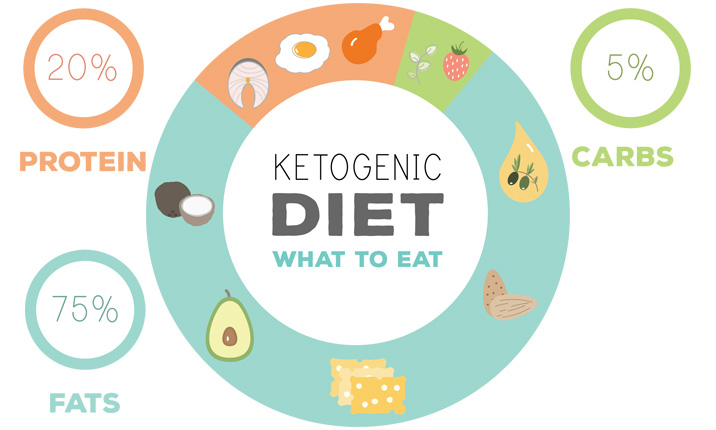To start, what exactly is the keto diet? Essentially, it’s a dietary approach that emphasizes high-fat consumption and low carbohydrate intake, similar to other low-carb diets like Atkins, but with a key difference. Unlike Atkins where carb intake increases in later phases and protein intake is unrestricted, the keto diet maintains low carb intake throughout and limits protein intake to 20% of daily calories.
How exactly does the keto diet promote weight loss?
The diet triggers a natural metabolic state called ketosis, during which your body breaks down stored fat and converts it into ketones for energy. Typically, your body relies on glucose from carbs as its primary energy source, but with reduced carb intake, it uses stored fat instead. This is the mechanism behind the weight loss benefits of the keto diet. It takes roughly three to four days for your body to exhaust its regular fuel sources and enter ketosis, after which it will start burning fat as a source of energy for daily activities.
To achieve ketosis, the general recommendation is to limit carb intake to less than 50 grams per day. This entails eliminating high-carb foods such as bread, pasta, potatoes, and sugary treats, as well as avoiding alcohol. To put it in perspective, 50 grams of carbs is equivalent to about half a cup of rice or a small bun. Thus, it doesn’t take a lot of food to reach the carb limit. Planning meals, snacks, and daily carb consumption ahead of time is crucial for maintaining consistency on the keto diet.
When following the keto diet, focus on consuming foods that are rich in healthy fats (such as omega-3 unsaturated fats), including nuts, seeds, cheese, yogurt, butter, and avocados. Quality protein sources are also essential, such as eggs, poultry, fatty fish, and ethically raised meat.
While there are several variations of the keto diet, dividing your food intake between fat, protein, and carbs is very important. In general, this means sticking to a diet of 75% fat, 20% protein, and 5% carbohydrates.

The keto diet offers various health benefits, including:
- Managing blood sugar levels: The keto diet can help improve insulin sensitivity and reduce glucose levels in the blood, making it beneficial for individuals with diabetes or prediabetes.
- Protecting against heart disease: Eating a ketogenic diet has been linked to higher levels of good cholesterol, lower blood pressure, and reduced body fat, which can all contribute to better heart health.
- Improving brain health: Contrary to common belief, the brain can function well on ketones instead of carbs. Research also shows that a keto diet may help reduce symptoms of Alzheimer’s disease, epilepsy, and Parkinson’s disease.
- Potentially fighting cancer: Although still being studied, some scientists believe that the keto diet may help prevent cancer cells from reproducing by lowering glucose levels and using ketones as an energy source.
- Clearing acne naturally: Adult acne can be linked to diet, and studies suggest that reducing carb intake can improve gut health and alleviate breakouts.
- Easing symptoms of PCOS: The keto diet can be beneficial for women with polycystic ovary syndrome (PCOS), a hormonal disorder that can cause irregular periods, excess body hair, and weight gain.
Although the keto diet can provide some beneficial health effects in the short term, it may not be suitable for long-term health goals.

After several months of following the keto diet, some individuals may experience kidney stones, fatty liver, or nutrient deficiencies, which are potential drawbacks. Moreover, the keto diet may not be the best choice for everyone, as our dietary needs are unique.
Another potential drawback is the “keto flu” that some people experience when starting the diet. This temporary condition occurs when the body is adjusting to the reduced intake of carbohydrates and may cause fatigue, constipation, headaches, nausea, vomiting, and difficulty exercising.
Lastly, the keto diet may not be ideal for athletes or those looking to build muscle mass since they may require a more protein-rich diet to achieve their fitness goals.
So, is the keto diet ideal for me?
With all that said, it’s safe to say that the keto diet can be a good health plan for some individuals.
However, it’s essential to consider a few things, such as specific health needs and consulting with your doctor before beginning the diet.
Following the diet for long-term wellness is not fully recommended, whereas short-term use of the keto diet can provide health benefits.
In conclusion, the healthiest diet is unique to each individual, so before deciding to introduce it to your body, it’s important to assess how well the keto diet works for you.



